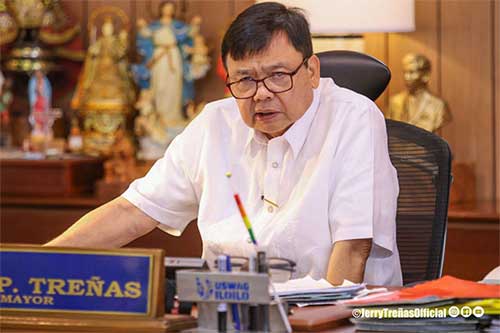By Herman M. Lagon
History is not neutral, nor is it an abstract record of the past. It shapes the present, informs the future, and, when manipulated, distorts a nation’s identity. The Catholic Educational Association of the Philippines (CEAP) understands this deeply, which is why its firm stand on commemorating the 1986 EDSA People Power Revolution matters. It is a declaration that the truth must not be diluted, democracy must not be compromised, and historical lessons must not be lost to political convenience.
In its official statement, CEAP reaffirmed that the spirit of EDSA remains alive whenever Filipinos stand for truth, fight disinformation, uphold justice, and resist the forces of political patronage. This is not just about remembering an event but preserving the moral and democratic values that EDSA fought for. By encouraging its 1,525 member schools to engage in commemorative activities—whether through class suspensions, alternative classes, forums, or community outreach—CEAP ensures that learning institutions do not merely recount history but actively participate in its defense.
Critics may argue that EDSA is already well-documented and that its memory does not require special recognition. But CEAP understands that remembrance is not passive—it is an active, conscious effort. A day of reflection ensures that younger generations grasp the weight of what was won in 1986 and why it must be protected. Choosing to recognize EDSA beyond official state pronouncements is a form of resistance against historical distortion, especially in an era where misinformation spreads unchecked and authoritarian nostalgia looms.
This is not merely an academic exercise. Education is inherently an act of empowerment. As Paulo Freire (1970) emphasized, education should liberate rather than domesticate. CEAP’s decision to push back against revisionism is rooted in schools’ responsibility to form critical thinkers who do not just absorb facts but analyze, discern, and act. Without this, education loses its transformative power and risks complicating historical erasure.
The downgrading of February 25 to a working day is not an isolated act—it is part of a broader attempt to reframe history. CEAP’s statement directly challenges this trend. CEAP’s stand affirms that EDSA is not just history—it is a living lesson in democracy that must be actively defended. In a time when narratives are being rewritten for political convenience, this commitment is more than symbolic; it is a call for vigilance.
CEAP schools go beyond teaching history—they shape future leaders by instilling integrity, justice, and civic duty. Schools influence communities, and by upholding the EDSA spirit, they keep truth and democracy central to education. This is an act of faith—not just in religious terms but in the belief that education can uphold truth in the face of distortion.
There is a clear challenge: Who will if schools do not take a stand? If educational institutions waver in defending history, how can they expect future generations to discern fact from fiction? CEAP’s leadership proves that remembering is an active responsibility, not just a passive exercise. Their stand challenges educators, historians, and Filipinos to keep EDSA’s lessons alive—not as nostalgia but as a guide for the future.
This is not about politics or glorifying the past. CEAP’s call is simple: truth should never be up for debate. Honoring EDSA means ensuring that justice and democracy remain at the heart of our national identity. Schools have led the way—the real question is whether the rest of the country will follow.
History does not erase itself—people do. CEAP’s defiance against the downgrading of EDSA is a reminder that truth needs defenders. The fight for democracy starts when minds are shaped, and values are formed. The issue is not whether EDSA matters but whether we dare to uphold its lessons before they fade into silence.
***
Doc H fondly describes himself as a ‘student of and for life’ who, like many others, aspires to a life-giving and why-driven world grounded in social justice and the pursuit of happiness. His views do not necessarily reflect those of the institutions he is employed or connected with.

























